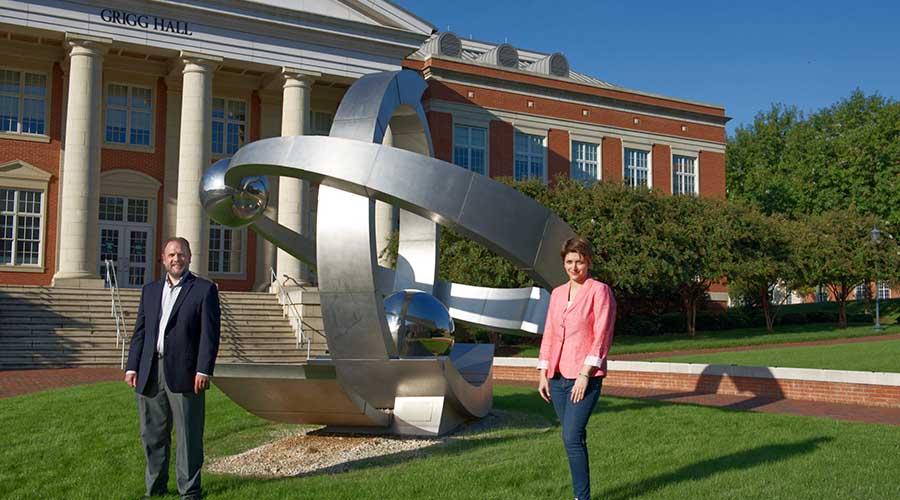
Optical Science and Engineering doctoral student Shohreh Shadalou is one of five award winners in Synopsys’ 2020 Robert S. Hilbert Memorial Optical Design Competition.
The annual competition celebrates exceptional research projects designed using Synopsys’ optical software solutions. Shadalou competed against graduate and undergraduate students from across North America. Other winners are students from Rose-Hulman Institute of Technology, the University of Arizona and the University of Rochester.
Shadalou’s project used freeform optics and Synopsys’ LightTools software to design a tunable LED-based desk lamp.
“Illumination engineering is the art of guiding the light from a given source to a desired target in an efficient manner,” said Shadalou, who completed a master’s degree from the University’s Lee College of Engineering in 2015. “Tunable illumination can improve functionality for different applications such as interior lighting, automotive lighting, medicine and dermatology, security cameras, and so on.” Other applications include virtual reality and augmented reality.
Fundamentally, optics are devices that control and direct light. Conventional optics such as lenses and mirrors are typically composed of flat, spherical or other symmetric shapes. Freeform optics contain more complex non-symmetrical shapes and allow optical designers more degrees of freedom to improve the optical performance and reduce the size of optical systems.
The desk lamp project allowed for efficient tuning of the lamp’s light, from a small bright illuminated area to a larger illuminated area with a dimmer but uniform light. While the project had practical results, its deeper purpose was to serve as a conceptual example of the design process and its potential for other applications.
“The most interesting thing about this project is that it includes all three aspects of design, manufacturing and testing of illumination systems,” Shadalou said. “Using the novel concept of freeform in following the idea and working toward realization as a final product was appealing to me. I became familiar with this field working with my mentor, Dr. Thomas Suleski, through a Center for Freeform Optics project.”
The Center for Freeform Optics, housed at UNC Charlotte and the University of Rochester, is focused on transforming the optics industry through freeform optics, with funding from the National Science Foundation and support from industry.
Shadalou and Suleski, a professor in the Department of Physics and Optical Science, are collaborating with Matthew Davies and a student team in the Mechanical Engineering and Engineering Science Department to build a prototype of her design.
“I worked in industry for a number of years before becoming a professor,” Suleski said. “So, it’s always in the back of my mind, with the research that we do, that while something might be a wild idea, it can be a wild idea with a payoff down the road. I really enjoy seeing projects like this come to fruition, something that hasn’t been done before and could be very useful.”
Read the entire story, including a question-and-answer with Shadalou, on CLAS Exchange.